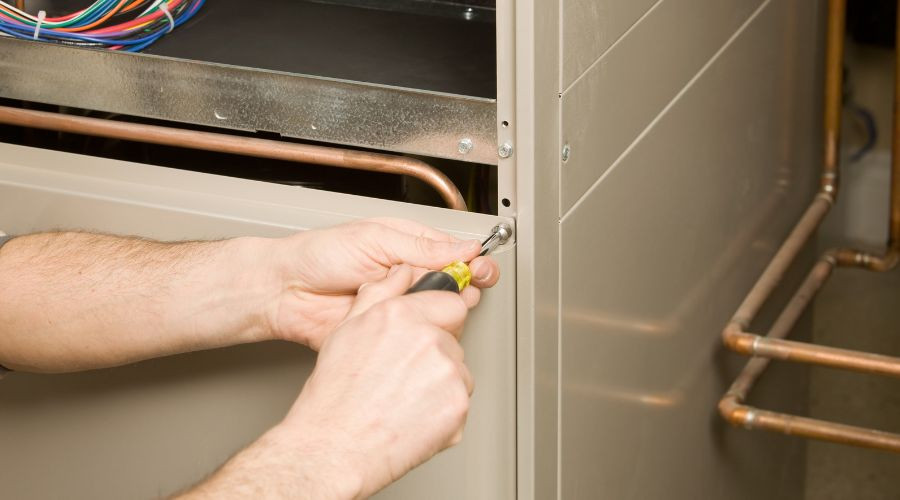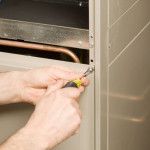When To Schedule a Heater Replacement in 2025
As the new year begins, it’s the perfect time for homeowners to assess whether their heating system needs an upgrade. An outdated heater can struggle to keep homes warm during the colder months, drive up energy costs, and decrease efficiency. Replacing it with a new system can enhance comfort, lower utility bills, and provide long-term peace of mind.
If a home’s current heating system is showing signs of wear or failing to meet the household’s needs, it can be time for homeowners to schedule a replacement. To help property owners decide, heating contractors in Omaha, NE, share the key indicators that it’s time to invest in a new heater.
Signs a Home Needs a New Heating System
 Several key warning signs can help homeowners decide when to replace the heating system. Making that decision can be challenging, so to offer help, experts recommend keeping an eye out for the following indicators:
Several key warning signs can help homeowners decide when to replace the heating system. Making that decision can be challenging, so to offer help, experts recommend keeping an eye out for the following indicators:
- Frequent Repairs: If the heater needs constant servicing, repair costs can quickly surpass the benefits of keeping it. Replacing the system can save time, money, and frustration.
- Inefficient Heating: If the home experiences uneven temperatures or persistent cold spots, these are clear signs that the heating system is losing efficiency and effectiveness.
- Rising Energy Bills: Faulty and older heating systems often consume more energy, increasing utility costs. Upgrading to a modern, energy-efficient model can reduce expenses and improve performance.
- Old Age: Most heating systems last 15 to 20 years. If a home’s system is nearing or surpassing this age, it’s wise to start planning for a replacement.
- Unusual Noises or Odors: Clanging, rattling, or odd smells can signal serious internal problems, which are often more cost-effective to address by installing a new unit.
Recognizing these signs allows homeowners to make a timely decision to upgrade, ensuring improved comfort, efficiency, and peace of mind.
What To Consider When Choosing a Heater for Your House
Selecting the right heating system ensures a home's comfort and energy efficiency. Here’s an overview of some standard heating options, along with their benefits and considerations:
- Furnaces: A dependable choice for heating large areas, furnaces can operate on natural gas, propane, or electricity. However, they require ductwork, which can add to installation costs if it’s not already in place.
- Heat Pumps: These systems are highly energy-efficient and provide heating and cooling, making them ideal for moderate climates. However, a supplemental heat source may be necessary in extremely cold conditions.
- Boilers: Renowned for delivering consistent, even heating, boilers can also supply hot water. They operate quietly but typically have higher upfront costs and slower heating response times than forced-air systems.
- Ductless Mini-Splits: Perfect for homes without ductwork, these systems offer high efficiency and zoned heating. While versatile, they often come with higher initial installation costs than traditional options.
Each heating system is designed to meet specific needs and preferences. When buying a new furnace, homeowners should consult a heating contractor to help homeowners identify the best option for their home, lifestyle, and budget.
Advantages of Scheduling Routine Heating Maintenance
 Regular maintenance is essential to keep a home’s new heating system running efficiently and reliably. Routine upkeep provides several important benefits:
Regular maintenance is essential to keep a home’s new heating system running efficiently and reliably. Routine upkeep provides several important benefits:
- Extended Lifespan: Preventive maintenance reduces wear and tear, helping a home’s heating system last longer and delaying the need for a replacement.
- Fewer Repairs: Regular inspections catch small issues early, preventing them from turning into costly, extensive repairs.
- Improved Efficiency: A well-maintained system uses less energy, lowering utility bills and cutting operating costs.
- Enhanced Safety: Maintenance checks help identify potential hazards, such as gas leaks or carbon monoxide, ensuring a safe and healthy home environment.
Neglecting maintenance can decrease efficiency, increase energy costs, and pose safety risks. Scheduling routine tune-ups protects a homeowner’s investment, minimizes unexpected breakdowns, and ensures year-round comfort without worry.
About SOS Heating & Cooling
Since 1950, the SOS Heating & Cooling experts have performed quality HVAC services to the Omaha metro area. They offer straightforward pricing and never upsell their customers. Call them today for heating replacements and heater installations in Omaha, NE.



